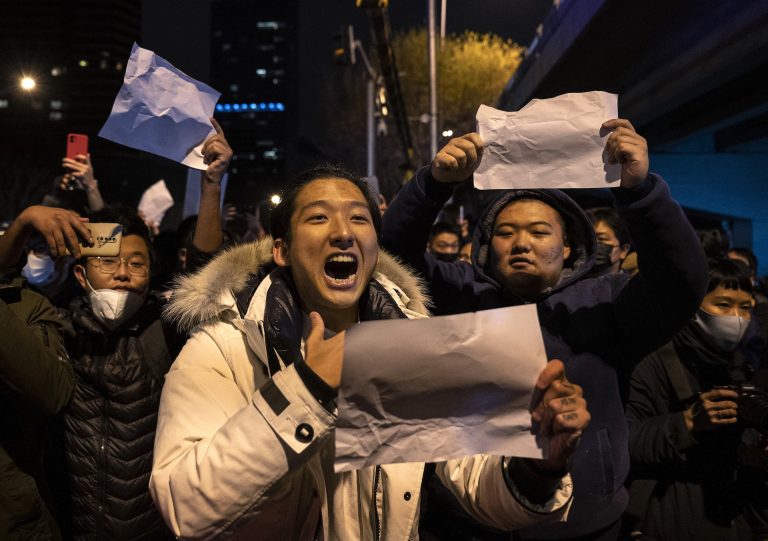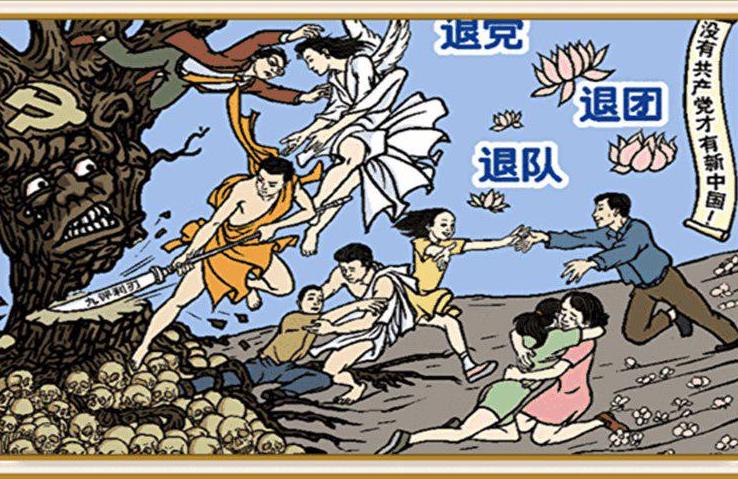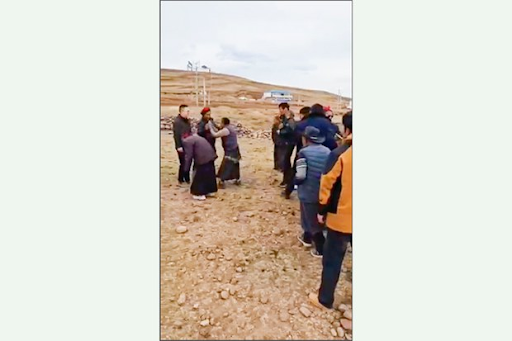The last couple weeks have seen a growing protest movement throughout China as people fed up with the communist regime’s crushing pandemic measures take to the streets by the hundreds or thousands.
Since 2020, the Chinese Communist Party (CCP) and its leader Xi Jinping have insisted on a draconian “zero-COVID” policy that tries to eradicate the novel coronavirus from the country — and in order to do so, they’ve resorted to locking people in their homes or in quarantine camps, making them line up for frequent COVID tests, and shuttering much of the economy.
According to various human rights and China-watching groups, protests against “zero-COVID” broke out in dozens of Chinese cities, two-thirds of the country’s provinces, and on nearly 100 college campuses.
READ MORE
- China’s Guangzhou in Revolt Over Newest COVID Lockdown
- Fearing COVID Lockdown, Over 10,000 Workers Break Out of China’s Biggest iPhone Factory
- Residents in China’s Guangxi Province Take to the Streets to Protest Draconian ‘Zero-COVID’ Policies
Most of the protests occurred between Nov. 25 and Nov. 28. The immediate trigger for the unrest was news of a deadly fire that broke out in a high-rise apartment building in Urumqi, the capital of China’s Xinjiang region, on Nov. 24. While authorities say that less than a dozen people died, unofficial reports claim that more than 40 people, including small children, succumbed to the flames, locked in their homes under the pandemic curbs.

Chinese both in and outside of the country gathered to mourn the victims of the Urumqi fire, and the crowds gained mass as more people joined in to express their disdain for “zero-COVID,” the authorities, and even the Communist Party itself.
Standing up to the Party
Success
You are now signed up for our newsletter
Success
Check your email to complete sign up
While protests are not unheard of in China even under the close watch of the repressive authorities, what’s special about the latest unrest is the fact that the demonstrations happened in multiple major cities within the space of days. In the city of Wuhan, for example, where the SARS-CoV-2 virus (which causes COVID-19) originated, large crowds could be seen blocking streets and marching through restricted areas shouting “the lockdown is lifted.”
Police made some arrests and some videos show protesters being beaten, but there were no reports of gunfire and the officers’ aggression appeared to be generally restrained despite the scale of the protests.
Perhaps more notable is that many of the protesters have actively called for the downfall of the Communist Party or Xi Jinping, given the danger of voicing such politically taboo opinions.

But in many of the protests, especially on major university campuses like those in Beijing and Shanghai, demonstrators chanted slogans that would not seem out of place in the 2019 Hong Kong protests — or the 1989 Chinese democracy movement, which the CCP infamously crushed with armed troops and tanks in and around Tiananmen Square.
A photo from Shanghai shows two professors confronting a row of police. In Beijing, a group of about 100 people walked to Tiananmen Square itself, shouting for freedom and an end to dictatorship.
The words “liberty or death” became a simple and popular slogan, resonating with the multitude of Chinese who have tired of their physical freedom being impeded for many months.
In a video seen in Beijing, a protester debates a person claiming that the demonstrations were “foreign forces” and urging the crowd to be more “patriotic.”
“These ‘foreign forces’ that you talk about, are they Marx and Engels? Is it Lenin? Is it Stalin?” the protester retorted, listing the names of non-Chinese communist theorists and dictators.
“Was it foreign forces who started the fire in Xinjiang? Was everyone told to come here by foreign forces? No!”
In one video shared on social media, hundreds of protesters facing down riot police in Beijing repeat lines shouted out by a female demonstrator:
“We don’t want nucleic acid testing, we want to live our lives; we don’t want the Communist Party, we want China.”
‘Blank paper revolution’ to demand freedom
Not all protesters were as direct in their messaging, expressing their intent in more coded ways.
Some adopted the tactics of Hong Kong protesters following the CCP’s imposition of the authoritarian National Security Law upon the city after its democracy movement: instead of holding up written signs, demonstrators would bring a blank sheet of A4-sized white paper — a reference to a Soviet-era joke about how no slogans were needed because “everybody knows” what the regime has done wrong.
One protester confronted by policemen insisted that he was merely holding up his piece of paper because he “rather likes white paper” and that there wasn’t any other meaning to his actions.
Others wrote down the Friedmann equation due to the word’s resemblance to “free man” and also because of its description of an unrestricted, ever-expanding universe.
Popular songs from the 2019 Hong Kong democracy movement could be heard at some of the protests, while some sang “The Internationale,” the Chinese national anthem, or waved the Chinese flag.

On the internet, censors have been compelled to ban some of Xi Jinping’s own sayings after protesters started to repurpose them for their cause.
An example goes: “The Chinese people have stood up and have united. They are not afraid of anything and cannot be messed with.”
Protesters also quoted Xi’s father Xi Zhongxun, who himself was a general and a high-ranking official in the early days of the CCP. The elder Xi, who espoused reformist ideas, had said: “A revolutionary political party is not afraid to hear the voice of the people; silence is the most frightening thing.”
Unfortunately, reprisals against the protesters have started, with police reportedly tracking down those who took in or “organized” the demonstrations. Many people have described on social media how officers demanded to check their phones for political sensitive communications.
Outside of mainland China, people gathered in Hong Kong and other parts of the world to show support for the protesters in China, including in Toronto, Vancouver, Harvard University in the U.S., Germany, Japan, and other countries.
While the CCP has motioned towards easing the “zero-COVID” policy, it remains to be seen if this can be done in a timely and feasible manner.
And though the protests appear to have died down by Monday, the sentiment has remained strong, and demonstrations continue in some parts of China, particularly the southern province of Guangdong.













